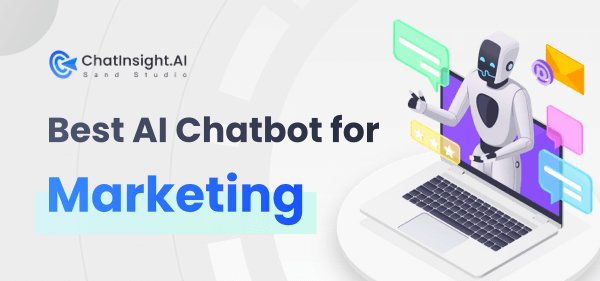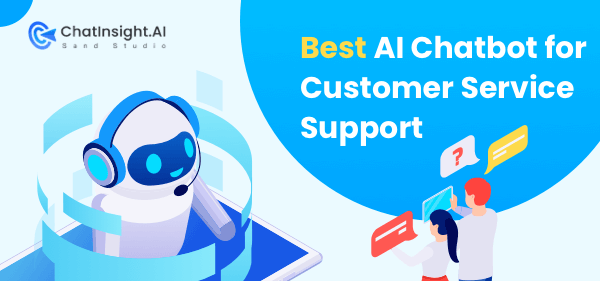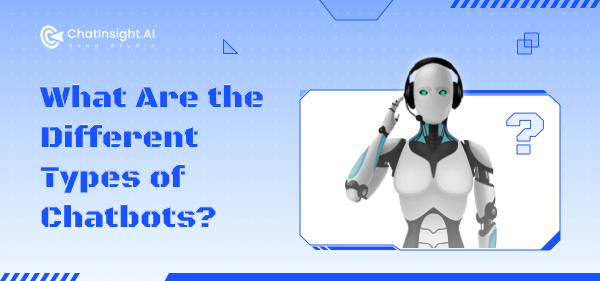Conversational AI For Customer Service: What You Should Know?
Our lives are becoming used to artificial intelligence gradually. It is a part of our frequent interactions with our favorite retailers. You will discover AI in entertainment and after-sales realms as well. While brands appreciate the cost-effectiveness, customers are pleased with the convenience. AI offers quick answers and simple solutions that are easy to implement.
Customers have more options to shop than ever before because of the internet and social media. They can review brands from their online profiles, different websites, and online forms. Thus, forming a quick opinion about the business’s core values. Therefore, it is essential to integrate conversational AI to boost customer service.
Conversational AI are unique computer programs that talk to retailers, customers, and vendors on behalf of the client. These chatbots are available 24/7 or day and night. In other words, buyers do not need to wait to talk to the staff during business hours. Here are the basics:
- Part 1:What is Conversational AI in Customer Service and How it Works?
- Part 2:The Benefits of Conversational AI for Businesses
- Part 3:The Examples of Conversational AI
- Part 4:How can Conversational AI help your Customer Service?
- Part 5:Challenges and Limitations of Conversational AI
- Part 6:The Future of Conversational Ai in Customer Service
1What is Conversational AI in Customer Service and How it Works?
Conversational artificial intelligence allows humans to have organic conversations with machines and applications. Common examples are chatbots, smart devices, virtual assistants, and wearable gadgets. It is one of the newest ways to incorporate technology in operations. Conversational AI is based on the GPT model that is making our lives quite easy, either personal or professional.
Conversational AI uses natural language processing and machine learning to do its job. In addition, AI in customer service also incorporates generative AI, Natural Language Generation, and Natural Language Understanding. Conversational AI uses the relevant technology to connect with humans easily. It makes conversations more human-like with a natural flow.
2The Benefits of Conversational AI for Businesses
Conversational AI, like chatbots and virtual assistants, offers a wide range of benefits for businesses. These benefits span various aspects of operations, customer service, and even marketing. Here are some key advantages:
Improves customer engagement and satisfaction
When artificial intelligence is put to conversational use, the brand sees a visible increase in customer satisfaction rate. This is because the technology is delivering excellent service within seconds. Furthermore, the answers are accurate and relevant. The customers are receiving answers from a verified source.
When the customers are satisfied with the services, they are likelier to shop from the same brand again. You can train the AI chatbots to offer product suggestions based on customer budget and previous purchase history. AI will combine accuracy with speed to impress all stakeholders.
24/7 availability and its impact on customer service
Conversational AI for customer service is available day and night. Customers are pleased with the quick responses. In other words, they are not waiting in long lines, frustrated to see progress. The customer can talk to the chatbot from anywhere in the world, regardless of their location or time zone.
A chatbot will explain the issue very well. They are an immediate solution to an urgent problem. The customer does not need to guess which product will match their needs. The chatbot will do the paperwork and solve product-related issues. They will ensure easy billing and payment as well.
Cost-effectiveness compared to traditional customer service models
Conversational AI for customer service is budget-friendly, and here is how. You do not need to train them because they are no-code. Secondly, the installation process does not involve complicated configurations. There are no bot paths that will confuse. In short, you train them with the content and input the necessary information.
The chatbots will use the knowledge base to answer queries. They are connected to the help center directly. The brand will not need to hire employees who are trained for months to do a job that the chatbots will do in seconds.
Scalability for handling large volumes of customer queries
Clients are pleased with the chatbots because they can handle a large volume of customer queries. As a result, they are efficient. Their implementation saves time and resources. The chatbots will process queries within seconds. Moreover, they will answer numerous customer inquiries at the same time. However, the quality of their service is not compromised.
While handling huge volumes, its services are personalized. The chatbot uses the customer’s name when it addresses them. You can tailor the chatbot according to the target demographic to improve the customer experience.
Data Collection and Analysis
Chatbots guarantee the secure transfer of data. It has been trained to safeguard the information the customers are sharing with it. Otherwise, trust cannot be established. Each chatbot has an independent data management policy which the vendor can customize. The chatbot will isolate unwanted from authentic data for analyzing.
Furthermore, the chat will comply with the latest privacy and auditing laws. It is intelligent enough to identify hackers and viruses. Subsequently, it will warn the client about the strategies to manage the threat.
Multilingual support
AI chatbots will answer the customers in their native language. They will identify the dialect and language from the initial query. Its ability to communicate in multiple languages impresses the customers. The chatbot is able to scale its operations to different markets. As a result, the brand achieves customer satisfaction.
The chatbot will comprehend complicated queries. It will answer queries from customers early in the morning. Multilingual support is available for night owls who are assembling the products at night time. The brand is constantly engaged with its shareholders from around the world. The chatbot is ready to assist them whenever the need arises.
Competitive Advantage
The AI use in customer service lets the brand attain a competitive advantage. The way the seller trains the chatbot matters a lot. If your chatbot resolves errors and eliminates bugs with simple steps, the customer will not browse for the competitors.
The back-and-forth conversation keeps the customers engaged. They can freely discuss the problem with their details. The chatbot will investigate the issue. It will either offer a solution or transfer the call to a human representative. When the human staff is well-trained, it impresses the customers further. The competitive advantage allows the brand to expand its market share. They can enter foreign markets because of brand recognition very easily.
3The Examples of Conversational AI
Conversational AI refers to technologies that enable machines to understand, process, and respond to human language in a natural and conversational manner. These are some common examples:
1. Chatbots
Chatbots interact with the customers 24/7. They are active and night. If a customer is unable to satisfy their query, a chatbot will do the job very well. ChatInsight will professionally handle unexpected scenarios. Moreover, it will offer human-like responses. You can customize ChatInsight according to your industry niche and target demographic. It is no code, making it very easy to use.
2. Virtual Assistants
Virtual assistants are powerful AI chatbots that allow the user to communicate using voice. They can operate the chatbots from different rooms and proximities. These chatbots are activated by voice. You can use them on smart speakers, mobile phones, and other smart devices. Virtual assistants will perfectly handle complex queries. They can make a joke or two!
3. Voice Bots
Voice bots are a step up from virtual assistants. While the virtual assistants are rule-based, voice bots use different models to comprehend queries. They rely on NLU, ML, NLP, and ASR models to deliver excellent services. In addition, voice bots will identify accents and slang. They will also offer suggestions for compatibility and use.
4. Knowledge Bases
Even if the brand has an easy user interface and a powerful online presence, some customers will find it difficult to retrieve the information they seek. Conversational AI is connected with the brand’s knowledge base. As a result, the chatbot will identify the right source and give answers in kind language.
4How can Conversational AI help your Customer Service?
Conversational AI can significantly enhance customer service in several ways:
1. Answering FAQs
AI chatbots are very helpful in answering repetitive questions. You can train the chatbot with the most frequently asked queries to save valuable time. Unfortunately, answering the same questions again and again is very time-consuming. As a result, AI gives the human staff a much-needed break from common queries.
2. Troubleshooting Suppor
As soon as the customer is confused or unable to access the service, they will contact the technical support team. However, there are instances when the customer has to wait. However, AI can resolve simple technical issues so the customer’s queries are satisfied. For example, the chatbot will perform device results and check the settings.
3. Order Management
Conversational AI for customer service is also ideal for order management. You can ask the AI about the shipping status. However, you must provide the tracking number. In addition, the chatbot will assist in shipping returns. The individual can inquire about refund policies from the chatbot as well. The chatbot is linked to IVR systems, which provide accurate information.
4. Appointment Scheduling<
The chatbots are quite helpful in scheduling appointments with vendors, investors, and other stakeholders. Moreover, you can use them to plan service appointments and callbacks as well. Furthermore, the chatbot will remind the user of future appointments, such as service visits. In short, the chatbot will keep everything on track so you can focus on running the business.
5. Feedback collection
Besides names and locations, the chatbot will collect opinions and suggestions. Conversational AI for customer services uses Natural Language Processing and artificial intelligence models to comprehend the user’s input. Resultantly, they offer relevant responses that please the customers. In addition, a chatbot will identify room for improvement based on its interactions. It improves the responses as well.
6. Personalized Recommendations
Before offering suggestions, the chatbot will study the previous conversations. Furthermore, they will analyze the browsing history. The chatbots are known for factoring in personal preferences before answering the user. As a result, the product recommendations are accurate and ready to consume. They match the customer's needs and their budget.
7. Live Chat Handover
The chatbots guarantee a straightforward procedure for simple queries. However, they will transfer the request to a human if the tasks are too complicated. The client can set up different jurisdictions which transfer the call to a human staff member. As a result, the customers feel they are prioritized.
8. Account Management
One of the reasons chatbots are becoming very popular is because of customer account management. The buyers can change the password as many as they wish. The chatbot will let you know if the new password is strong or not. Furthermore, the users can request a tutorial on product use as well. The AI chatbot will let the customers know about the new account features as well.
9. Billing and Payment
Chatbots will answer customer questions about payments. They will offer assistance throughout the checkout process as well. Moreover, the chatbots are very helpful in removing challenges that make it difficult for customers to check out. The chatbot will separate the amount into tax payables, shipping charges, refunds, and the sales price for an extensive understanding.
10. Upselling and Cross-selling
The chatbots implemented for conversations will inquire about the customer's needs. They will ask the right questions to cross-sell and upsell products. The chatbot will offer bundles and packages with many items at a low price. The strategy improves customer engagement with the brand. It leads to referrals and generates more sales.
11. Multilingual Support
The AI technology is very powerful. It will easily translate customer requests for easy understanding. Furthermore, a powerful chatbot will offer its help in multiple languages to global customers. It identifies the primary language from the dialects. The feature results in customer loyalty because the buyers feel their queries are better handled and understood.
12. Data Collection and Analysis
The AI chatbots are perfect for collecting data from customers because they ask the right questions. Their embedded conversational qualities study customer behavior closely. They will collect the buyer’s contact information, location, and age. The data is later used in the decision-making process by the client. It leads to better product development as well.
5Challenges and Limitations of Conversational AI
Conversational AI, like the one you're interacting with now, has made significant strides in recent years, but it still faces a number of challenges and limitations. Here are some key points:
Addressing the complexity of human language and nuances
No matter the advancements, AI will not be able to comprehend the complexity of emotions in humans. Therefore, whether you are using a chatbot or virtual agent, the seller must offer a route for human communication. The chatbot can let them know when their queries are being transferred to a staff member.
The customer can decide if they wish to chat over the phone or email. They can opt for the live chat as well. As a result, the customers feel the most comfortable talking about their issues with the staff, who are trained to navigate anger and frustration.
Ensuring privacy and data security
When you are installing the chatbot, ensure the data you are training it with is comprehensive. The information could be related to knowledge base or CRM information. Regardless, the security guidelines must be accurate and well-written. Otherwise, it will deliver contradicting information.
If you are using a third party to install a chatbot, ensure the provider knows the relevant privacy laws. You can ask for their input regarding composing the answers. Overcome communication mismanagement with a professional attitude.
Limitations in handling complex or sensitive customer issues
Chatbots in customer service are unable to analyze complex problems that need a deeper level of understanding. This is because the chatbots are programmed with limited rules that determine how they behave. The chatbots are unable to process emotions or resolve complicated issues.
Unfortunately, the chatbots cannot think critically. Compared to a human being, they will not analyze a situation from different perspectives. In addition, they will not evaluate alternative outcomes.
6The Future of Conversational Ai in Customer Service
The future of conversational AI in customer service is expected to be transformative, with several key trends and developments:
1. Prediction of technological advancements
The future of AI in customer service is unlimited. Brands are looking forward to high-speed customization. As a result, the chatbot will reflect the brand’s attributes and voice. AI will learn the language of the brand and ensure a better, consistent customer experience. It will adopt the brand’s logo and color scheme.
Consistency in top-quality service leads to brand recognition. Furthermore, it positively influences customer satisfaction. The advancements become an extension of the client/brand.
2. Ethical considerations and the human elements in AI-driven customer service
Brands must pay close attention to the ethical dilemmas related to AI. Chatbot use in the operations must be acted upon with responsibility. The brands must ensure that the AI use is positive and that it is not adversely impacting the users, customers, or staff.
Furthermore, the chatbot clients must stay updated with the changes in the latest laws. Compliance is the key to winning customer’s heart. The modern-day buyer is very aware of their actions.
3. Potential changes in customer service strategies due to AI advancements
Customer service strategies influence the role of AI in every industry. With the digital realm constantly expanding, AI will need to adapt to processing larger amounts of data. As a result, the client benefits from valuable insight. The changes in customer service strategies will impact the results for the better.
In short, identifying purchasing patterns will become easy. The brands gain an updated understanding of the way the customers think. It leads to unique products and services.
Final Word
AI is introducing new and easy ways to engage with customers. It is leading to personalized conversations, more sales, and faster gains. You can achieve these results by using ChatInsight. The chatbot uses an LLM model to answer customer queries. You can train it with an industry-specific knowledge base to deliver accurate answers. Embed it into your website or social media profiles today!







Leave a Reply.